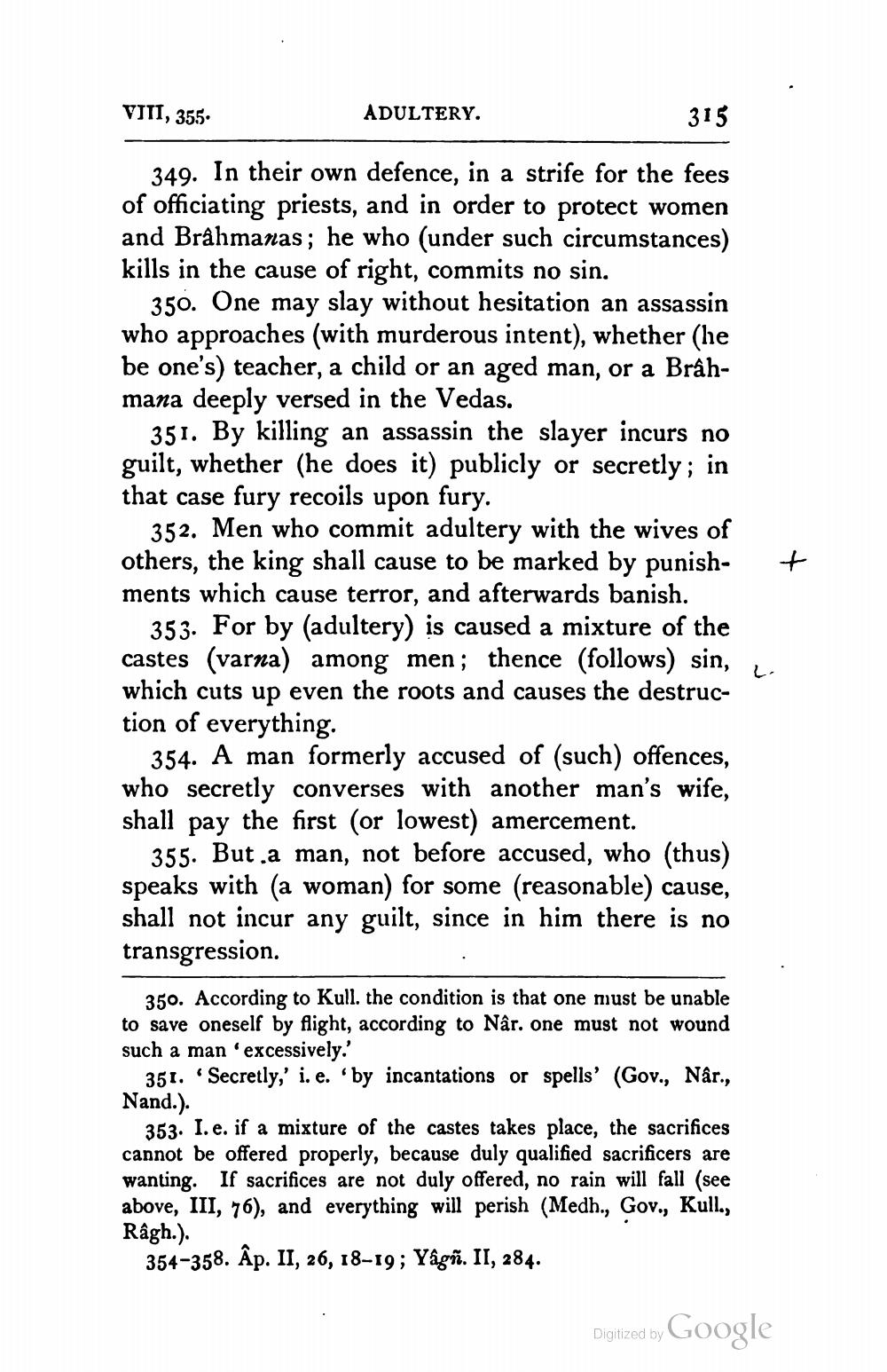________________
VIII, 355.
ADULTERY.
315
349. In their own defence, in a strife for the fees of officiating priests, and in order to protect women and Brahmanas; he who (under such circumstances) kills in the cause of right, commits no sin.
350. One may slay without hesitation an assassin who approaches (with murderous intent), whether (he be one's) teacher, a child or an aged man, or a Brâhmana deeply versed in the Vedas.
351. By killing an assassin the slayer incurs no guilt, whether (he does it) publicly or secretly; in that case fury recoils upon fury.
352. Men who commit adultery with the wives of others, the king shall cause to be marked by punishments which cause terror, and afterwards banish.
353. For by (adultery) is caused a mixture of the castes (varna) among men; thence (follows) sin, which cuts up even the roots and causes the destruction of everything.
354. A man formerly accused of (such) offences, who secretly converses with another man's wife, shall pay the first (or lowest) amercement.
355. But a man, not before accused, who (thus) speaks with (a woman) for some (reasonable) cause, shall not incur any guilt, since in him there is no transgression.
350. According to Kull. the condition is that one must be unable to save oneself by flight, according to Nâr. one must not wound such a man 'excessively.'
351. Secretly,' i. e. 'by incantations or spells' (Gov., Nâr., Nand.).
353. I. e. if a mixture of the castes takes place, the sacrifices cannot be offered properly, because duly qualified sacrificers are wanting. If sacrifices are not duly offered, no rain will fall (see above, III, 76), and everything will perish (Medh., Gov., Kull., Râgh.).
354-358. Ap. II, 26, 18-19; Yâgñ. II, 284.
Digitized by
L.
Google
+




